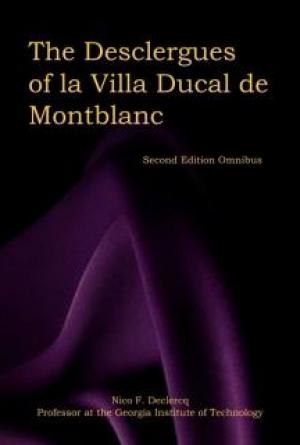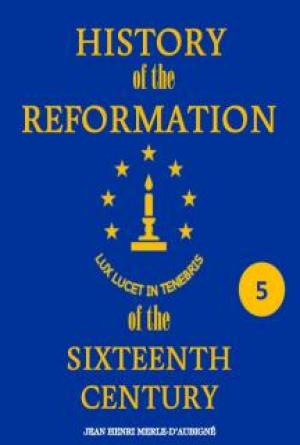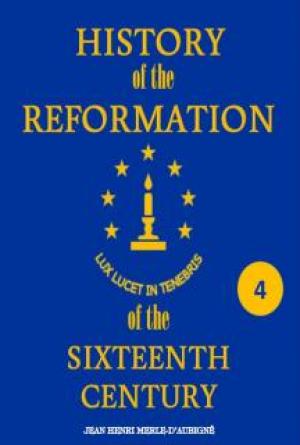In the olden days, before the Jewish people had moved into
Egypt, they too had been wanderers among the endless plains
of Arabia. They had lived in tents and they had eaten plain
food, but they had been honest men and faithful women,
contented with few possessions but proud of the righteousness
of their mind.
All this had been changed after they had become exposed to
the civilization of Egypt. They had taken to the ways of the
comfort-loving Egyptians. They had allowed another race to rule
them and they had not cared to fight for their independence.
Instead of the old gods of the wind-swept desert they had
begun to worship strange divinities who lived in the glimmering
splendors of the dark Egyptian temples.
Moses felt that it was his duty to go forth and save his people
from their fate and bring them back to the simple Truth of the
olden days.
And so he sent messengers to his relatives and suggested that
they leave the land of slavery and join him in the desert.
But the Egyptians heard of this and guarded the Jews more
carefully than ever before.
It seemed that the plans of Moses were doomed to failure when
suddenly an epidemic broke out among the people of the Nile
www.gutenberg.org/files/9991/9991-h/9991-h.htm
65/90
8/15/12
Ancient Man
Valley.
The Jews who had always obeyed certain very strict laws of
health (which they had learned in the hardy days of their desert
life) escaped the disease while the weaker Egyptians died by
the hundreds of thousands.
Amidst the confusion and the panic which followed this Silent
Death, the Jews packed their belongings and hastily fled from
the land which had promised them so much and which had given
them so little.
As soon as the flight became known the Egyptians tried to
follow them with their armies but their soldiers met with
disaster and the Jews escaped.
They were safe and they were free and they moved eastward
into the waste spaces which are situated at the foot of Mount
Sinai, the peak which has been called after Sin, the Babylonian
God of the Moon.
There Moses took command of his fellow-tribesmen and
commenced upon his great task of reform.
In those days, the Jews, like all other people, worshipped many
gods. During their stay in Egypt they had even learned to do
homage to those animals which the Egyptians held in such high
honor that they built holy shrines for their special benefit.
Moses on the other hand, during his long and lonely life amidst
the sandy hills of the peninsula, had learned to revere the
strength and the power of the great God of the Storm and the
Thunder, who ruled the high heavens and upon whose good-will
the wanderer in the desert depended for life and light and
breath.
This God was called Jehovah and he was a mighty Being who
was held in trembling respect by all the Semitic people of
western Asia.
Through the teaching of Moses he was to become the sole
Master of the Jewish race.
One day Moses disappeared from the camp of the Hebrews. He
took with him two tablets of rough-hewn stone. It was
whispered that he had gone to seek the solitude of Mount
Sinai's highest peak.
That afternoon, the top of the mountain was lost to sight.
The darkness of a terrible storm hid it from the eye of man.
But when Moses returned, behold! ... there stood engraved upon
www.gutenberg.org/files/9991/9991-h/9991-h.htm
66/90
8/15/12
Ancient Man
the tablets the words which Jehovah himself had spoken amidst
the crash of his thunder and the blinding flashes of his
lightning.
From that moment on, no Jew dared to question the authority of
Moses.
When he told his people that Jehovah commanded them to
continue their wanderings, they obeyed with eagerness.
For many years they lived amidst the trackless hills of the
desert.
They suffered great hardships and almost perished from lack of
food and water.
But Moses kept high their hopes of a Promised Land which
would offer a lasting home to the true followers of Jehovah.
At last they reached a more fertile region.
They crossed the river Jordan and, carrying the Holy Tablets of
Law, they made ready to occupy the pastures which stretch from
Dan to Beersheba.
As for Moses, he was no longer their leader.
He had grown old and he was very tired.
He had been allowed to see the distant ridges of the Palestine
Mountains among which the Jews were to find a Fatherland.
Then he had closed his wise eyes for all time.
He had accomplished the task which he had set himself in his
youth.
He had led his people out of foreign slavery into the new
freedom of an independent life.
He had united them and he had made them the first of all
nations to worship a single God.
JERUSALEM--THE CITY OF THE LAW
www.gutenberg.org/files/9991/9991-h/9991-h.htm
67/90
8/15/12
Ancient Man
Palestine is a small strip of land between the mountains of
Syria and the green waters of the Mediterranean. It has been
inhabited since time immemorial, but we do not know very much
about the first settlers, although we have given them the name
of Canaanites.
The Canaanites belonged to the Semitic race. Their ancestors,
like those of the Jews and the Babylonians, had been a desert
folk. But when the Jews entered Palestine, the Canaanites lived
in towns and villages. They were no longer shepherds but
traders. Indeed, in the Jewish language, Canaanite and
merchant came to mean the same thing.
They had built themselves strong cities, surrounded by high
walls and they did not allow the Jews to enter their gates, but
they forced them to keep to the open country and make their
home amidst the grassy lands of the valleys.
After a time, however, the Jews and the Canaanites became
friends. This was not so very difficult for they both belonged to the same race. Besides they feared a common enemy and only
their united strength could defend their country against these
dangerous neighbors, who were called the Philistines and who
belonged to an entirely different race.
The Philistines really had no business in Asia. They were
Europeans, and their earliest home had been in the Isle of
Crete. At what age they had settled along the shores of the
Mediterranean is quite uncertain because we do not know when
the Indo-European invaders had driven them from their island
home. But even the Egyptians, who called them Purasati, had
feared them greatly and when the Philistines (who wore a
headdress of feathers just like our Indians) went upon the war-
path, all the people of western Asia sent large armies to protect their frontiers.
As for the war between the Philistines and the Jews, it never
came to an end. For although David slew Goliath (who wore a
suit of armor which was a great curiosity in those days and had
been no doubt imported from the island of Cyprus where the
copper mines of the ancient world were found) and although
Samson killed the Philistines wholesale when he buried himself
and his enemies beneath the temple of Dagon, the Philistines
always proved themselves more than a match for the Jews and
never allowed the Hebrew people to get hold of any of the
harbors of the Mediterranean.
The Jews therefore were obliged by fate to content themselves
with the valleys of eastern Palestine and there, on the top of a
barren hill, they erected their capital.
www.gutenberg.org/files/9991/9991-h/9991-h.htm
68/90
8/15/12
Ancient Man
The name of this city was Jerusalem and for thirty centuries it
has been one of the most holy spots of the western world.
In the dim ages of the unknown past, Jerusalem, the Home of
Peace, had been a little fortified outpost of the Egyptians who
had built many small fortifications and castles along the
mountain ridges of Palestine, to defend their outlying frontier
against attacks from the East.
After the downfall of the Egyptian Empire, a native tribe, the
Jebusites, had moved into the deserted city. Then came the
Jews who captured the town after a long struggle and made it
the residence of their King David.
At last, after many years of wandering the Tables of the Law
seemed to have reached a place of enduring rest. Solomon, the
Wise, decided to provide them with a magnificent home. Far
and wide his messengers travelled to ransack the world for rare
woods and precious metals. The entire nation was asked to
offer its wealth to make the House of God worthy of its holy
name. Higher and higher the walls of the temple arose guarding
the sacred Laws of Jehovah for all the ages.
Alas, the expected eternity proved to be of short duration.
Themselves intruders among hostile neighbors, surrounded by
enemies on all sides, harassed by the Philistines, the Jews did
not maintain their independence for very long.
They fought well and bravely. But their little state, weakened by petty jealousies, was easily overpowered by the Assyrians and
the Egyptians and the Chaldeans and when Nebuchadnezzar,
the King of Babylon, took Jerusalem in the year 586 before the
birth of Christ, he destroyed the city and the temple, and the
Tablets of Stone went up in the general conflagration.
At once the Jews set to work to rebuild their holy shrine. But
the days of Solomon's glory were gone. The Jews were the
subjects of a foreign race and money was scarce. It took
seventy years to reconstruct the old edifice. It stood securely
for three hundred years but then a second invasion took place
and once more the red flames of the burning temple brightened
the skies of Palestine.
When it was rebuilt for the third time, it was surrounded by two
high walls with narrow gates and several inner courts were
added to make sudden invasion in the future an impossibility.
But ill-luck pursued the city of Jerusalem.
In the sixty-fifth year before the birth of Christ, the Romans
under their general Pompey took possession of the Jewish
www.gutenberg.org/files/9991/9991-h/9991-h.htm
69/90
8/15/12
Ancient Man
capital. Their practical sense did not take kindly to an old city with crooked and dark streets and many unhealthy alley-ways.
They cleaned up this old rubbish (as they considered it) and
built new barracks and large public buildings and swimming-
pools and athletic parks and they forced their modern
improvements upon an unwilling populace.
The temple which served no practical purposes (as far as they
could see) was neglected until the days of Herod, who was King
of the Jews by the Grace of the Roman sword and whose vanity
wished to renew the ancient splendor of the bygone ages. In a
half-hearted manner the oppressed people set to work to obey
the orders of a master who was not of their own choosing.
When the last stone had been placed in its proper position
another revolution broke out against the merciless Roman tax
gatherers. The temple was the first victim of this rioting. The
soldiers of the Emperor Titus promptly set fire to this center of the old Jewish faith. But the city of Jerusalem was spared.
Palestine however continued to be the scene of unrest.
The Romans who were familiar with all sorts of races of men
and who ruled countries where a thousand different divinities
were worshipped did not know how to handle the Jews. They did
not understand the Jewish character at all. Extreme tolerance
(based upon indifference) was the foundation upon which Rome
had constructed her very successful Empire. Roman governors
never interfered with the religious belief of subject tribes. They demanded that a picture or a statue of the Emperor be placed in
the temples of the people who inhabited the outlying parts of
the Roman domains. This was a mere formality and it did not
have any deep significance. But to the Jews such a thing
seemed highly sacrilegious and they would not desecrate their
Holiest of Holies by the carven image of a Roman potentate.
They refused.
The Romans insisted.
In itself a matter of small importance, a misunderstanding of
this sort was bound to grow and cause further ill-feeling. Fifty-
two years after the revolt under the Emperor Titus the Jews
once more rebelled. This time the Romans decided to be
thorough in their work of destruction.
Jerusalem was destroyed.
The temple was burned down.
A new Roman city, called Aelia Capitolina was erected upon the
ruins of the old city of Solomon.
www.gutenberg.org/files/9991/9991-h/9991-h.htm
70/90
8/15/12
Ancient Man
A heathenish temple devoted to the worship of Jupiter was built
upon the site where the faithful had worshipped Jehovah for
almost a thousand years.
The Jews themselves were expelled from their capital and
thousands of them were driven away from the home of their
ancestors.
From that moment on they became wanderers upon the face of
the Earth.
But the Holy Laws no longer needed the safe shelter of a royal
shrine.
Their influence had long since passed beyond the narrow
confines of the land of Judah. They had become a living symbol
of Justice wherever honorable people tried to live a righteous
life.
DAMASCUS--THE CITY OF TRADE
The old cities of Egypt have disappeared from the face of the
earth. Nineveh and Babylon are deserted mounds of dust and
brick. The ancient temple of Jerusalem lies buried beneath the
blackened ruins of its own glory.
One city alone has survived the ages.
It is called Damascus.
Within its four great gates and its strong walls a busy people
has followed its daily occupations for five thousand consecutive
years and the "Street called Straight" which is the city's main artery of commerce, has seen the coming and going of one
hundred and fifty generations.
Humbly Damascus began its career as a fortified frontier town of
the Amorites, those famous desert folk who had given birth to
the great King Hammurapi. When the Amorites moved further
eastward into the valley of Mesopotamia to found the Kingdom
of Babylon, Damascus had been continued as a trading post
with the wild Hittites who inhabited the mountains of Asia
Minor.
In due course of time the earliest inhabitants had been
www.gutenberg.org/files/9991/9991-h/9991-h.htm
71/90
8/15/12
Ancient Man
absorbed by another Semitic tribe, called the Aramaeans. The
city itself however had not changed its character. It remained
throughout these many changes an important center of
commerce.
It was situated upon the main road from Egypt to Mesopotamia
and it was within a week's distance from the harbors on the
Mediterranean. It produced no great generals and statesmen
and no famous Kings. It did not conquer a single mile of
neighboring territory. It traded with all the world and offered a safe home to the merchant and to the artisan. Incidentally it
bestowed its language upon the greater part of western Asia.
Commerce has always demanded quick and practical ways of
communication between different nations. The elaborate system
of nail-writing of the ancient Sumerians was too involved for the Aramaean business man. He invented a new alphabet which
could be written much faster than the old wedge-shaped figures
of Babylon.
The spoken language of the Aramaeans followed their business
correspondence.
Aramaean became the English of the ancient world. In most
parts of Mesopotamia it was understood as readily as the native
tongue. In some countries it actually took the place of the old
tribal dialect.
And when Christ preached to the multitudes, he did not use the
ancient Jewish speech in which Moses had explained the Laws
unto his fellow wanderers.
He spoke in Aramaean, the language of the merchant, which
had become the language of the simple people of the old
Mediterranean world.
THE PHOENICIANS WHO SAILED
BEYOND THE HORIZON
A pioneer is a brave fellow, with the courage of his own
curiosity.
Perhaps he lives at the foot of a high mountain.
www.gutenberg.org/files/9991/9991-h/9991-h.htm
72/90
8/15/12
Ancient Man
So do thousands of other people. They are quite contented to
leave the mountain alone.
But the pioneer feels unhappy. He wants to know what
mysteries this mountain hides from his eyes. Is there another
mountain behind it, or a plain? Does it suddenly arise with its
steep cliffs from the dark waves of the ocean or does it overlook a desert?
One fine day the true pioneer leaves his family and the safe
comfort of his home to go and find out. Perhaps he will come
back and tell his experience to his indifferent relatives. Or he
will be killed by falling stones or a treacherous blizzard. In that case he does not return at all and the good neighbors shake
their heads and say, "He got what he deserved. Why did he not stay at home like the rest of us?"
But the world needs such men and after they have been dead
for many years and others have reaped the benefits of their
discoveries, they always receive a statue with a fitting
inscription.
More terrifying than the highest mountain is the thin line of the distant horizon. It seems to be the end of the world itself.
Heaven have mercy upon those who pass beyond this meeting-
place of sky and water, where all is black despair and death.
And for centuries and centuries after man had built his first
clumsy boats, he remained within the pleasant sight of one
familiar shore and kept away from the horizon.
Then came the Phoenicians who knew no such fears. They
passed beyond the sight of land. Suddenly the forbidding ocean
was turned into a peaceful highway of commerce and the
dangerous menace of the horizon became a myth.
These Phoenician navigators were Semites. Their ancestors had
lived in the desert of Arabia together with the Babylonians, the
Jews and all the others. But when the Jews occupied Palestine,
the cities of the Phoenicians were already old with the age of
many centuries.
There were two Phoenician centers of trade.
One was called Tyre and the other was called Sidon. They were
built upon high cliffs and rumor had it that no enemy could take
them. Far and wide their ships sailed to gather the products of
the Mediterranean for the benefit of the people of Mesopotamia.
At first the sailors only visited the distant shores of France and Spain to barter with the natives and hastened home with their
grain and metal. Later they had built fortified trading posts
www.gutenberg.org/files/9991/9991-h/9991-h.htm
73/90
8/15/12
Ancient Man
along the coasts of Spain and Italy and Greece and the far-off
Scilly Islands where the valuable tin was found.
To the uncivilized savages of Europe, such a trading post
appeared as a dream of beauty and luxury. They asked to be
allowed to live close to its walls, to see the wonderful sights
when the boats of many sails entered the harbor, carrying the
much-desired merchandise of the unknown east. Gradually they
left their huts to build themselves small wooden houses around
the Phoenician fortresses. In this way many a trading post had
grown into a market place for all the people of the entire
neighborhood.
Today such big cities as Marseilles and Cadiz are proud of their
Phoenician origin, but their ancient mothers, Tyre and Sidon,
have been dead and forgotten for over two thousand years and
of the Phoenicians themselves, none have survived.
This is a sad fate but it was fully deserved.
The Phoenicians had grown rich without great effort, but they
had not known how to use their wealth wisely. They had never
cared for books or learning. They had only cared for money.
They had bought and sold slaves all over the world. They had
forced the foreign immigrants to work in their factories. They
cheated their neighbors whenever they had a chance and they
had made themselves detested by all the other people of the
Mediterranean.
They were brave and energetic navigators, but they showed
themselves cowards whenever they were obliged to choose
between honorable dealing and an immediate profit, obtained
through fraudulent and shrewd trading.
As long as they had been the only sailors in the world who could
handle large ships, all other nations had been in need of their
services. As soon as the others too had learned how to handle a
rudder and a set of sails, they at once got rid of the tricky
Phoenician merchant.
From that moment on, Tyre and Sidon had lost their old hold
upon the commercial world of Asia. They had never encouraged
art or science. They had known how to explore the seven seas
and turn their ventures into profitable investments. No state,
however, can be safely built upon material possessions alone.
The land of Phoenicia had always been a counting-house
www.gutenberg.org/files/9991/9991-h/9991-h.htm
74/90
8/15/12
Ancient Man
without a soul.
It perished because it had honored a well-filled treasure chest
as the highest ideal of civic pride.
THE ALPHABET FOLLOWS THE TRADE
I have told you how the Egyptians preserved speech by means
of little figures. I have described the wedge-shaped signs which
served the people of Mesopotamia as a handy means of
transacting business at home and abroad.
But how about our own alphabet? From whence came those
compact little letters which follow us throughout our life, from
the date on our birth certificate to the last word of our funeral notice? Are they Egyptian or Babylonian or Aramaic or are they
something entirely different? They are a little bit of everything, as I shall now tell you.
Our modern alphabet is not a very satisfactory instrument for
the purpose of reproducing our speech. Some day a genius will
invent a new system of writing which shall give each one of our
sounds a little picture of its own. But with all its many
imperfections the letters of our modern alphabet perform their
daily task quite nicely and fully as well as their very accurate
and precise cousins, the numerals, who wandered into Europe
from distant India, almost ten centuries after the first invasion of the alphabet. The earliest history of these letters, however,
is a deep mystery and it will take many years of painstaking
investigation before we can solve it.
This much we know--that our alphabet was not suddenly
invented by a bright young scribe. It developed and grew during
hundreds of years out of a number of older and more
complicated systems.
In my last chapter I have told you of the language of the
intelligent Aramaean traders which spread throughout western
Asia, as an international means of communication. The
language of the Phoenicians was never very popular among their
neighbors. Except for a very few words we do not know what
sort of tongue it was. Their system of writing, however, was
carried into every corner of the vast Mediterranean and every
Phoenician colony became a center for its further distribution.
www.gutenberg.org/files/9991/9991-h







